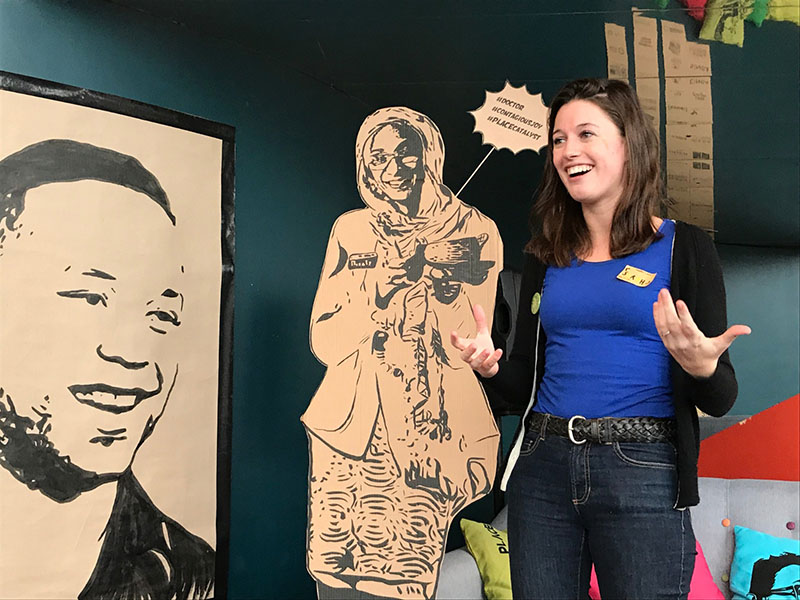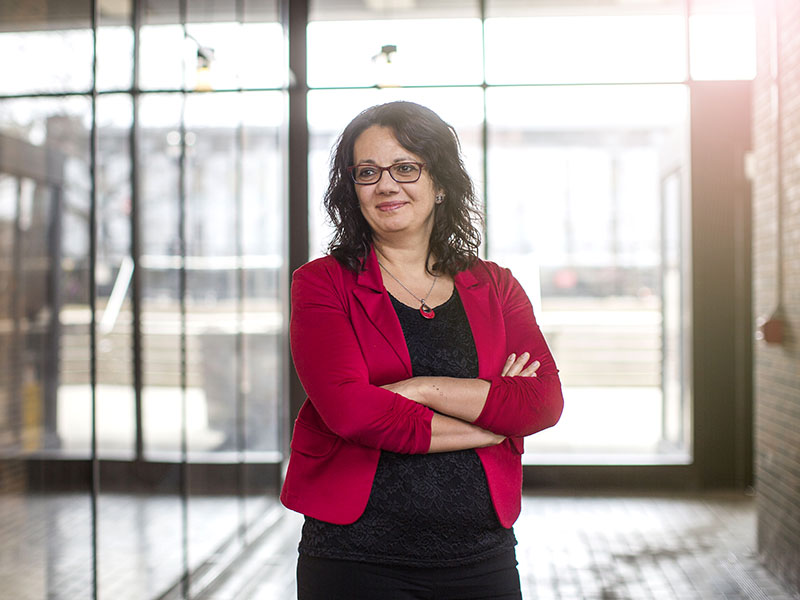Helping newcomers reach their business potential
Originally published in the Globe and Mail

Researchers and alumni from Carleton University’s Sprott School of Business are committed to improving the entrepreneurial and employment prospects for newcomers
Human migration has become a hot-button issue in recent years.
About 244 million people in the world, or 3.3 per cent of the population, are migrants. The United Nations says that global displacement is at a record high. Nations such as Canada regularly welcome refugees and immigrants, while prominent voices in the Europe and U.S. stoke fears about a migrant crisis.
But at Carleton University’s Sprott School of Business, researchers and students look past the politics of migration to investigate the employment prospects and entrepreneurial potential of newcomers.
Luciara Nardon is an associate professor of international business at Sprott and the director of Carleton’s Centre for Research and Education on Women and Work. Nardon studies the workplace prospects of newcomers, an area of investigation that is expanding in interest and influence.
“In the last couple of years, immigration and employment has become a topic at business conferences, which it was not before,” she says. “Sprott allowed me to start early on this topic, and now it’s becoming more and more important.”
Nardon recalls going to academic events years ago and being asked why she was even studying topics that were considered more appropriate for sociologists or international development experts. “I’ve been told more than once that no, this isn’t a business problem. But of course I disagree,” Nardon says.
She notes that the traditional research mandate in most business schools is focused on improving business performance. But Sprott has long valued the concept of the socially responsible business and encouraged faculty to do research in this area. And when it comes to entrepreneurship, Sprott has always maintained that corporate social responsibility can be a priority, even if businesses don’t show direct return on investment every time.
“You cannot always discover a business case,” Nardon says. “But Sprott is very open to the idea that the role of business in society [is] bigger than maximizing profit.”
Sprott’s focus on social business is something that became very important to Sarah McRae during her time as a student there.
“For me, the concept of social and business is something that should always be together. Every business should be a social business. Businesses should add value,” says McRae, who graduated with a Bachelor of International Business (BIB) from Sprott in 2015.

While she was drawn to Sprott initially for the BIB’s focus on language — she got additional training and immersion in French — McRae found herself interested in the function of business in society, thanks to her instructors.
“I was close to a few of my professors who were very vocal in their passion for social business,” she says.
During her time at Sprott, McRae took part in an international study opportunity in Tanzania, where students worked within a multidisciplinary team to develop sustainable solutions for water use. It was an opportunity that firmed up McRae’s ideas of what she wanted to do with her career.
“[The trip] was a defining moment that pushed me into entrepreneurship,” McRae says. “It combined the environment and social business to create real value.”
McRae now leads business development for PLACE Network, a European organization that offers migrants and refugees training in innovation, leadership, entrepreneurship and startup support. Based in Paris, McRae works with a small, diverse team and has helped train about 230 migrants and refugees in Paris, Berlin and London since 2016.
“PLACE really shows that diversity is essential for any strategic business to invest in. If you have diverse people, you have diverse ideas,” she says.
McRae helps newcomers to France set up businesses, many of which contribute to more than just the economy. One restaurant, launched by a Syrian, is redefining the way Middle Eastern food can be served in a French-style bistro, McRae says. An Afghani newcomer has launched an employment agency and found work for more than 50 people. Another new company teaches coding to kids.
Some newcomers who have gone through PLACE’s training programs are better able to find jobs too. “Entrepreneurship is a mindset,” McRae says. “Being able to see a problem and propose a solution and be able to grow from that – any dynamic employer should value that as well.”
Back in Ottawa, Nardon is studying employment prospects for newcomers to Canada. She’s particularly interested in mindset, and how a person’s attitude and the advice they receive can influence their employment future.
In one study, Nardon looked at the experiences of a group of male engineers from the Philippines. Some of these newcomers found the substantial barriers to getting re-certified in Canada overwhelming, and prioritized supporting their families with other employment in the short term. Others stayed firm in their resolve to get professional work in engineering as soon as they could. Over time, the latter group were more likely to find work at a level commensurate with their professional training.
“What they thought really influenced their actions,” Nardon says.
Now, using a Carleton research award and funding from the federal Social Sciences and Humanities Research Council, Nardon is examining the interactions between newcomers and professionals at employment centres. She’s interested in seeing how these conversations might shape mindsets and outcomes.
“We know the barriers are there, and they should change,” she says. “But why wait for something to happen? How can we help [people] actually navigate the system and get to a better situation?”
Questions like these can trigger a whole new type of dialogue around immigrants and refugees and their ability to contribute to the economy, Nardon says. And that kind of dialogue can help newcomers thrive and succeed in the countries they now call home.